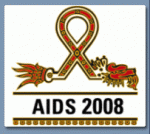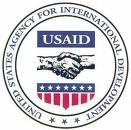XVII International AIDS Conference in Mexico City (August 3-8, 2008)
 The XVII International International AIDS Conference will take place in Mexico City from August 3-8. This promises to be interesting given that the The President's Emergency Plan for AIDS Relief (PEPFAR), already the largest initiative ever devoted to a single disease, was reauthorized and expanded to $48 billion over the next five years. The Kaiser Family Foundation will be webcasting many portions of the conference. You will also be able to read summaries of each day's events here.
The XVII International International AIDS Conference will take place in Mexico City from August 3-8. This promises to be interesting given that the The President's Emergency Plan for AIDS Relief (PEPFAR), already the largest initiative ever devoted to a single disease, was reauthorized and expanded to $48 billion over the next five years. The Kaiser Family Foundation will be webcasting many portions of the conference. You will also be able to read summaries of each day's events here.










